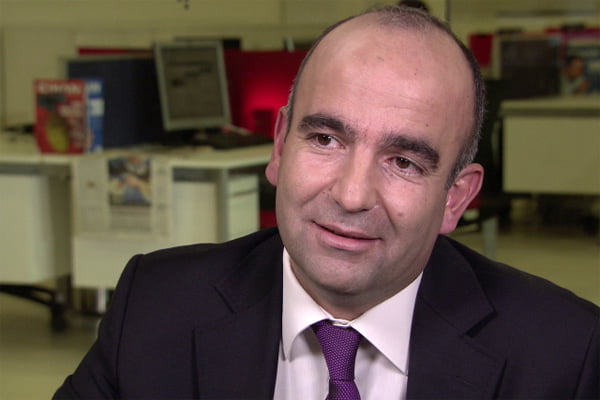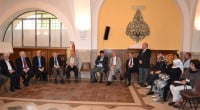A serious question for a respected newspaper

Date posted: April 29, 2012
Abdulhamit Bilici, April 29, 2012
It is not easy to understand a fast-changing and multi-layered country like Turkey. This is a nation where some who self-identify as progressive, modern, social democrats oppose freedoms in a number of arenas and hope for assistance from military coups, while some labeled as Islamic, devout and even reactionary wind up playing leading roles in democratization. And so, while even the brightest among us have difficulties understanding this general tableau, it is even more difficult for those sometimes peering in from the outside to comprehend it.
This is why whenever I try to explain Turkey to foreigners, I always feel the need to summarize at least the past 30 years. In trying to explain how it is that the political tension in Turkey lies not between the devout and the secular, but rather between those who want change and the status quo, one needs to explain that over the past 30 years, 70 percent of the people who used to live in villages have moved to big cities.
One also has to talk about the vast changes that have come to a country where possessing a passport used to be in itself a great privilege, where having foreign currency was a crime, and where private radio and television channels were banned. One has to then explain that this same country now does $130 billion worth of export, that one of its civil society movements has opened private schools in 140 countries, or that there are now more than 1,000 private radio stations, and more than 200 private television channels. One also needs to explain to people that the same circles in this country always said to be enemies of secularity, the republic and Atatürk have in fact always been on the side of democracy, but that the governments elected by them have always been overturned by coups in the name of modernity, secularity and progressiveness.
Though references to the current multitude of exports and private schools and media may be normal in Western democracies, one must also acknowledge the unique Turkish interpretations and meanings to some very basic political ideas and concepts. This is because in a normal democracy the definitions of “state” and “government” might be used interchangeably, but in Turkey, the “government” might wind up being either the enemy or even the victim of the structures that are identified as the “state.” And just as an elected government, which is identified as the state’s domestic enemy can be eliminated through a regular or postmodern coup, a party labeled similarly as an enemy of the state can easily be forced to shut down.
Like the case taken out in 2008 against the Justice and Development Party (AK Party) which had already taken 47 percent of the vote on July 22, 2007. And so, while it is difficult to uncover the real truth in such an atmosphere — where previous templates you might have encountered no longer apply, and words and actions stand in full conflict with one another — it is not entirely impossible. What one needs to uncover the truth is good intentions, lots of time and much energy.
Actually, some serious newspapers with correspondents in Turkey were able to uncover the truth during the crisis of 2007, despite a wealth of propaganda. Here is an outtake from something I wrote on May 5, 2007 for Zaman, one week after the April 27 e-memorandum from the military, the fifth anniversary of which was Friday:
“One gratifying development in the framework of this period is that some respected newspapers from both Europe and America are printing more consistent and coherent analyses of Turkey, unlike some of the disconnected-from-reality analyses from the past. For example, a letter from the editor carried in the May 1 edition of The Washington Post notes that, given the democratic reforms carried out over the past five years, fears about the government seem misplaced. The column finishes with this line: ‘At this point, the most basic threat to democracy in Turkey comes not from the AK Party but those who oppose it.’ And in a treatment of the topic in one of Europe’s most respected newspapers, the Guardian, the question ‘Is there any real basis to the fears of secularists in Turkey?’ the response given is ‘The fears have been exaggerated’.”
Unfortunately however, something strange has been happening for awhile now to serious newspapers. On April 18 in the Herald Tribune, a piece of news was published reminiscent of the sort of stories we have been accustomed to seeing in newspapers like Aydınlık on the topic of the Gülen movement (aka Hizmet movement). Despite denials from source Ayşe Böhürler, who was used as a source for the story, the same piece of news was published in The New York Times. Critical journalism is one of the most important aspects of a true democracy, but only when it is fair and balanced, as well as objective and true. Setting aside for a moment the fact that the aforementioned article was in complete conflict with a story published on the same topic two years prior in the same newspaper, the article was filled with unproven allegations used to condemn, with no mention of things like Gülen’s support for the EU accession process, no mention of his meetings with important religious leaders like the pope, and nothing about his condemnation of al-Qaeda actions or support for Turkey’s Sept. 12, 2010 referendum.
In fact, the measure of unfair imputations included in this article went so far that American law professor James Harrington reacted immediately, writing a strong letter of protest to the newspaper. And one sentence from his letter in particular should capture the attention of a newspaper so widely respected, and known for the care it gives to editorials: “Does this article, which mentions so frequently the allegations against Gülen, not also mention the fact that he was acquitted after a long trial because such a fact would run counter to the general thesis being put forward by the article? The Gülen movement, just as it has contributed to democracy in Turkey, has also carried out good work throughout the world in other countries. A journalist must write impartially.” And so, it must be asked, what is the real problem at hand when such a respected newspaper publishes such skewed news? Does the problem lie with the correspondent, the “kitchen,” or other points of power?
Source: Today’s Zaman http://www.todayszaman.com/columnistDetail_getNewsById.action?newsId=278965
Tags: Defamation of Hizmet |
























